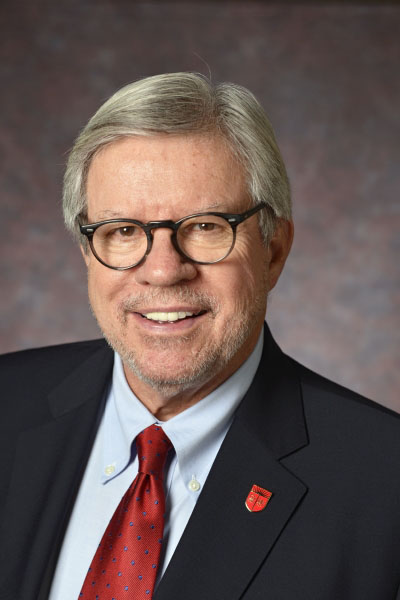Soon after, Edwards launched two initiatives to examine the university’s early connections to slavery and to broaden conversations about inclusion and race at Rutgers-New Brunswick: The Task Force on Inclusion and Community Values and the Committee on Enslaved and Disenfranchised Populations in Rutgers History.
On April 6, the committee is hosting Craig Steven Wilder, author of Ebony and Ivy: Race, Slavery, and the Troubled History of America's Universities and a professor of American history at Massachusetts Institute of Technology. The book lays bare uncomfortable truths about race, slavery and the American academy and examines the ties of many of America's revered colleges and universities – including Rutgers – to slavery.
Rutgers Today spoke with Edwards about his decision to create these new initiatives that address concerns about racial climate on campus and the goals he would like to achieve.
Rutgers Today: This fall you created the Task Force on Inclusion and Community Values and the Committee on Enslaved and Disenfranchised Populations in Rutgers History. Please explain the purpose of each.
Edwards: The committee was set up to look at Rutgers’ history. It is a fact that some of the earliest people in Rutgers’ history owned slaves. It is a fact that this part of New Jersey had many slaver holders. And it is a fact that Rutgers is on land that at one point belonged to the Lenni Lenape tribe. All over the country people are becoming more sensitive and concerned about the role of slavery and the role of displacing Native American tribes as part of our national history. I know some of our students have had these concerns about Rutgers.
The committee, which includes Rutgers students as well as faculty members, was established to focus on our history and take a look at what was happening here 250 years ago – with particular reference to slavery and the founding fathers as well as Rutgers-occupied lands that previously were Native American. How can we memorialize and recognize that history?
The task force was established to take a look at the issues of race and bias and identity. We are way ahead of many universities in terms of the diversity we have, but we have a ways to go in terms of the various groups feeling comfortable interacting with each other and with the university. I think that’s a challenge for most colleges right now. It’s good to attract a diverse student body, but that’s only half the intention. It’s about how people can interact with each other, learn from each other and prepare for the complex world they are going to be living in.
I’ve asked the task force to conduct focus groups to get input from students and faculty and come up with some sense of what might be a way of broadening inclusion at our university.
Rutgers Today: Were these new initiatives launched to coincide with Rutgers 250th anniversary? If so, why?
Edwards: If you want to look at slavery and the early history of Rutgers, this is our 250th anniversary, so that would be a logical time frame to examine what was here at the beginning. The task force has nothing to do with the 250th. It has to do with contemporary society: where we are now, where we are going and how we are going to deal with issues that are confronting virtually every other university in the country.
Rutgers Today: Tell me more about the committee’s April 6 event with Wilder. What conversations would you like to see this speaking engagement spawn?
Edwards: He’s going to spend a full day with us, meeting with university leadership, task force and committee members and some of our faculty and groups of students – particularly African-American student leaders. Wilder’s talk will be followed by a question and answer session. Given that he mentions Rutgers in his book repeatedly, I’m interested in his perspective and hope that it’s a spring board for our committee and its research efforts to flesh out what the situation was at Rutgers at the point of creation and years later when slavery was still an issue here.
Rutgers Today: Going forward, what do the task force and committee hope to accomplish at Rutgers-New Brunswick?
Edwards: The task force report is due at the end of April. We have to see what their report suggests we do in the future. I know everything will not end there. The committee report is due in the fall right about the time we celebrate our 250th anniversary. We will look at their recommendations with an eye toward how we might recognize our history in a more permanent way. It might mean putting up historical markers on campus, or the committee could come up with a publication that details that part of Rutgers’ history. I think this is a much more balanced approach. We are not hiding from a significant part of our history. Wherever the research takes us – that’s where we will go.
– Lisa Intrabartola



